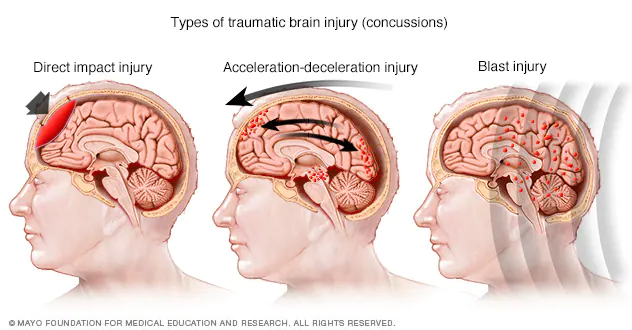|
What happens in a concussion, why are they dangerous, how can we heal them and is there a risk of repeat concussion or secondary issues if we don't treat them right? Concussions are a type of traumatic brain injury (TBI for short), caused by a bump, blow, or jolt to the head that disrupts the normal functioning of the brain. They are commonly seen in sports, as well as in high-risk environments or in occupations such as stunt work.
Concussions can be dangerous, and if left untreated or not treated correctly, they can result in long-term brain damage or even death. In this article, we will explore the causes, symptoms, treatment, and risks associated with concussions. Causes of Concussion Concussions occur when the brain is forcefully shaken within the skull, leading to a disturbance in its normal functioning. This can happen in several ways, such as a direct blow to the head, a violent shaking of the head and neck, or even a sudden stop or change in direction that causes the brain to move within the skull. Most common causes of concussion outside of sports:
Types of Concussion Concussions can be categorized based on several factors, including the cause, severity, and location of the injury. Here are some examples of different types of concussion:
How to spot a concussion: Obvious Symptoms The symptoms of concussion can vary depending on the severity of the injury and the individual affected. Some common symptoms include:
Treatment of Concussion The first step in treating a concussion is to rest and avoid any activities that may cause further injury. This includes refraining from any physical activity, limiting screen time, and getting plenty of rest. In some cases, medication may be prescribed to manage symptoms such as headache or nausea. It is important to note that returning to physical activity or work too soon can increase the risk of another concussion or prolong the recovery time. A healthcare professional will typically provide a timeline for returning to normal activities based on the severity of the injury and the individual's progress in recovery. Risks of Repeat Concussion or Secondary Issues If a concussion is not treated correctly or if an individual returns to high-risk activities too soon, there is a risk of repeat concussion or secondary issues such as post-concussion syndrome (PCS). PCS is a collection of symptoms that can last for weeks, months, or even years after the initial injury. Symptoms may include headache, dizziness, fatigue, and cognitive impairments such as difficulty concentrating or remembering things. In rare cases, repeated concussions can lead to chronic traumatic encephalopathy (CTE), a degenerative brain disease that can cause long-term cognitive and behavioral problems. IMPORTANT: If you suspect that someone has a concussion, it is important to seek medical attention right away. In the meantime, encourage the person to rest and avoid physical activity until a healthcare professional can evaluate their condition. It's also important to note that some symptoms of concussion may not appear immediately after the injury, so it's important to monitor the person's condition over time and seek medical attention if any symptoms develop or worsen. Comments are closed.
|
AuthorThis blog os co-authored by The ISA Team Archives
June 2024
Categories
All
|


 RSS Feed
RSS Feed

11/16/2022